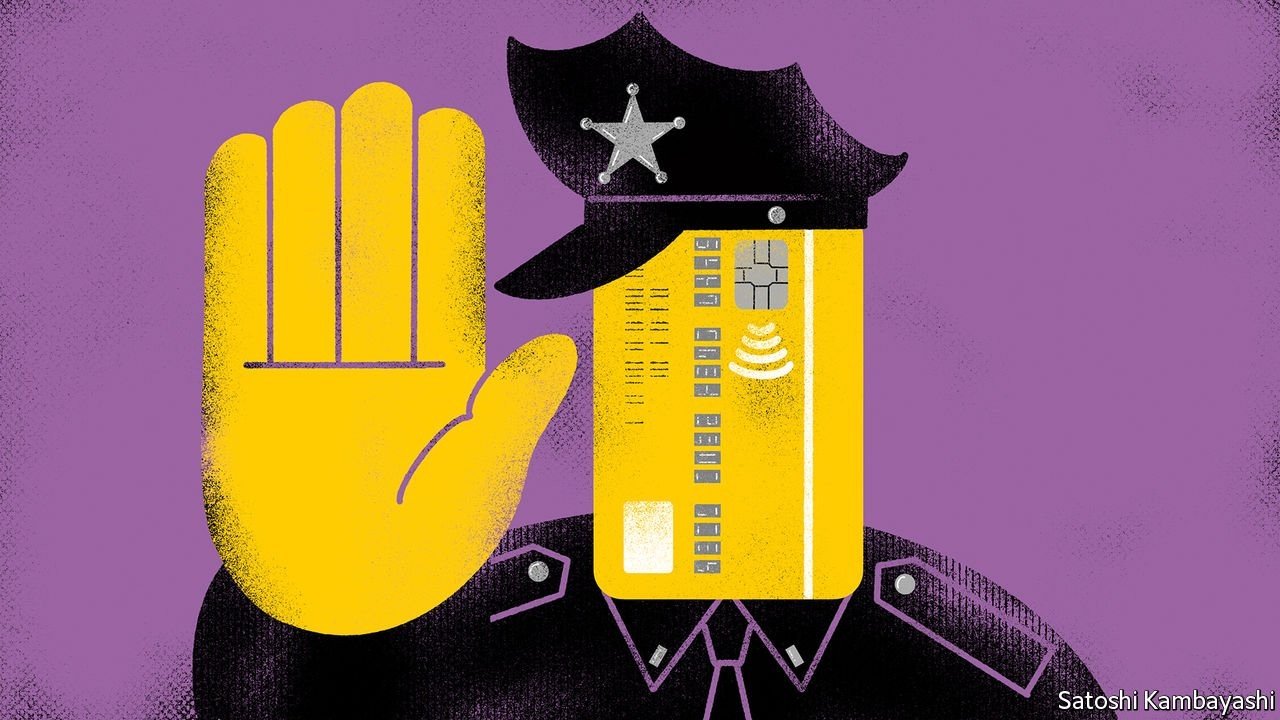WHO SHOULD police the internet? For some time now the question has tied companies, regulators and campaigners in knots. Social networks spend billions moderating content posted on their platforms, but are still criticised either for not removing enough toxic material or for stifling free speech. They are not the only ones to grapple with the problem. Banks and credit-card companies too are finding themselves playing a bigger role in what is said and done in the public square—to their, and their customers’, discomfort.
Now the boundary of censorship is being extended further, into the pornography business. From October 15th adult websites worldwide will have to verify the age and identity of anyone featured in a picture or video, as well as the id of the person uploading it. They will need to operate a fast complaints process, and will have to review all content before publication. These requirements are being imposed not by regulators but by Mastercard, a credit-card giant.
Websites can always choose not to work with Mastercard. But given that the company handles about 30% of all card payments made outside China, to do so would be costly. Visa, which manages a further 60% of payments, is also taking a firmer line on adult sites. And the trend goes beyond porn. In the shadier corners of the web, and in industries where the law is unclear or out of date, financial firms are finding themselves acting as de facto regulators.
Since the turn of the century, “payments have become a tool of domestic and international policy,” says Aaron Klein of the Brookings Institution, a think-tank. After the 9/11 attacks of 2001 America introduced new anti-money-laundering rules and more targeted sanctions. This system—a “21st-century precision-guided munition”, as a former head of the cia called it—obliges financial firms to block payments to the individuals on a list which today runs to 1,604 pages.
Around the same time, governments began to tap banks for help at home. A craze for online poker prompted America’s Unlawful Internet Gambling Enforcement Act of 2006, which handed responsibility for blocking transactions not to the internet service providers that […]
Click here to view original web page at www.economist.com
